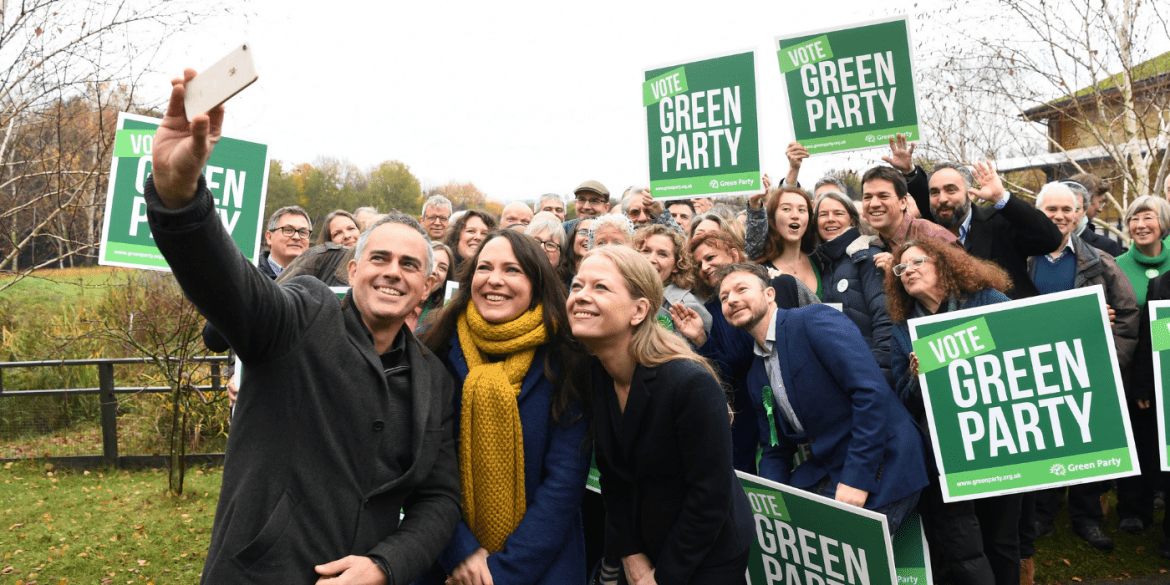Earlier this month, the Green Party had its best ever Greater London Authority (GLA) election results, heralding a potential shift in the capital’s politics.
In the London mayoral election, Green candidate Sian Berry led the party to its highest ever vote share in the election’s history, achieving nearly 8 per cent of the vote and coming in third place for the third time in a row.
Berry also came first place in the second preference vote, amassing almost half a million votes.
Andrée Frieze, the South West constituency’s Green candidate in the London Assembly election, said a key reason for the spike in Green votes in London was Berry herself.
“She’s really clear about what her vision is and how she will improve London. We are really clear: there is a climate emergency, there is social injustice, and we provide solutions to deal with them,” she said.
Meanwhile, the party gained a third Assembly Member in the London Assembly, Zack Polanski.
Polanski will sit alongside Berry and Caroline Russell, bringing the party’s representation on the Assembly to three for the first time since 2004.
Frieze stated that since election day on May 6, more than 1,700 people had signed up to become a member of the Green Party.
“On a wider scale, I would say the local elections have shown that there is nowhere that is off limits to the Greens now. For the wider Green party, that’s confidence boosting and its attracted more members,” she said.
Even where the party did not perform well in London, such as in Frieze’s South West constituency, the party’s vote share still increased marginally on all previous years.
Kingston Liberal Democrat councillor Olly Wehring said he was not surprised that the Greens performed well in the London elections, due to heightened awareness of environmental issues over the past couple of years.
“I think the Greens have potential to do well in urban areas where there’s a heightened awareness of issues like air quality, recycling, bins etc. I think the awareness of that in built up areas is quite high,” he said.
However, he said it is “subjective” to call the rise in vote share a surge as the Greens have not yet found appeal in more rural, leafy areas or in the older population.
“I think, short term, there’s an element of a ceiling to the potential of the Green Party but longer term I don’t think there is a ceiling,” he said.
Kingston Conservative councillor and former leader of Kingston Council Kevin Davis said that the Green surge could be here to stay in the capital.
“I’ve been picking up on the doorsteps that there is a great deal of time for another third party. I think the Greens do appeal to a slightly urban, metropolitan voter who’s younger and passionately cares about the environment,” he said.
Davis said he believes that people who may have once voted for the Liberal Democrats could now be voting for the Greens, due in part to the Liberal Democrat’s coalition with the Conservatives in 2010.
“I don’t think they [Liberal Democrats] are getting the same number of votes from that type of person now. They are looking for something different, and that’s really going to continue as far as I can see,” he said.
As concerns around the climate crisis continue to rise, particularly with the UK set to host the UN Climate Change Conference later this year, it is likely that interest in the Green Party will continue.
However, Wehring predicted that the more established parties, including the Liberal Democrats, will begin to bring their environmental policies and credentials to the front of their agendas in response.
“There are some pretty good green credentials that the Lib Dems have got that they can and should really start emphasising and start shouting about,” he said.
In addition to its success in the GLA elections, the Greens currently have 12 London councillors, its highest number since 2006, after a Labour councillor in Enfield defected to the Greens last week.
Despite this, the Greens would face a back-breaking battle to replicate the success of the GLA elections at London’s next key elections, the London Council elections in 2022, which tell a wholly different picture of London’s politics.
Joe Talora, a local democracy reporter covering City Hall, said: “Often the councils in London don’t reflect the wider picture. You’ve got constituencies where there will be two Labour MPs but then three Tory councillors, or Labour Assembly Members and Lib Dem councillors. It’s extremely hard to try and draw comparisons.”
While the Greens may be in third place in the GLA elections, there are more than 150 Liberal Democrat councillors in London and three Liberal Democrat-controlled councils (Kingston, Richmond and Sutton), compared to the Green’s 12 councillors and no Green-led councils.
There is a possibility that Labour councillors will struggle in parts of the capital next year. Some Labour councils have come under mounting criticism recently, such as Croydon Council in the face of its financial crisis.
Talora said we may see some Labour seats lost in 2022.
“Whether or not that will translate into Green wins, I’m not entirely sure,” he said.
It is incredibly difficult to monitor London as a monolith in the council elections, as we may do in the mayoral election.
Wehring said: “People vote for a variety of reasons. I think it’s very difficult to broad brush it when it comes to London’s council elections next year because Camden’s concerns are different to Kingston’s.”
Though a constituency may wish for the Greens to take London-wide control in the mayoral election, they may favour another party to tackle more local issues.
Frieze acknowledged that the party struggles to make waves in London at council level. However, she said that she is hopeful that the party will continue going from strength to strength.
“I really think that next year we will have a good result in the council elections. In London I am sure we will get more councillors elected,” she said.
So is the Green surge here to stay?
“You can call it a Green surge, but actually it’s not necessarily a surge, it’s just a lot of slow, dedicated plodding by people who are really determined,” Frieze said.
“There are thousands of people across London who’ve voted Green for the first time. And the big issue now is to get them to vote Green again, and that’s what we need to be determined to do.”






